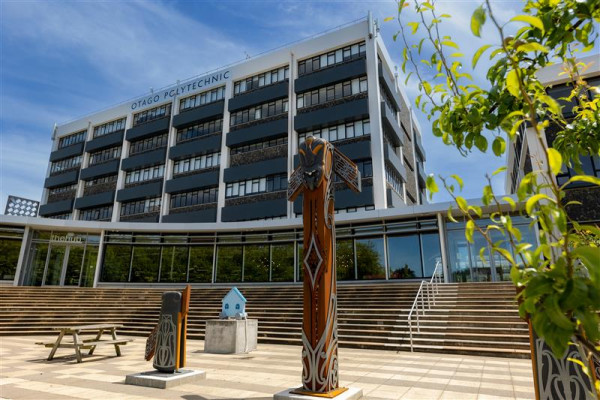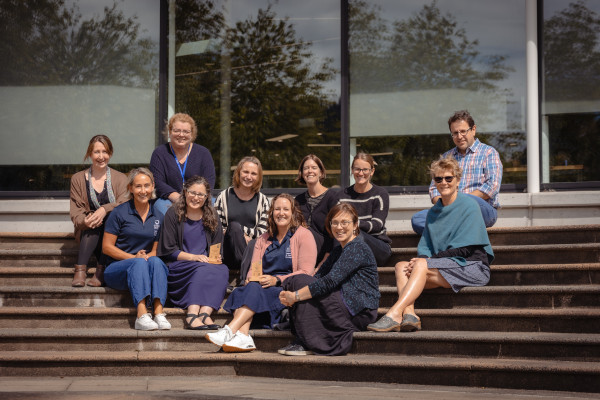- Tūhono home Hoki ki Tūhono
-
- Staff Directory
- Chief Executive Office Auckland International Office Corporate Services Finance Campus Services Functions and Catering Information Systems and Support Marketing, Communications and Engagement Learner Journey Academic Registry International Learner Services Te Punaka Ōwheo
- Learner Experience Academic Excellence Central Campus College of Community Development and Personal Wellbeing College of Engineering, Construction and Living Sciences College of Health College of Work Based Learning Open Education Resource/OERu Research and Postgraduate Studies Te Maru Pumanawa | College of Creative Practice and Enterprise
- Māori Development and Kaitohutohu Office People, Culture & Safety People and Culture Childcare Centre Te Ama Ako | Learning and Teaching Development Wellbeing and Safety Auckland Staff Directory Executive Office Academic Corporate Services Marketing and Business Development Human Resources Campus Quality and Programme Development
-
 Our people make a better world
Our people make a better world
We build the capabilities of individuals, organisations and communities and help them to realise their potential.
Staff Directory
-
- Tools
- Academic Integrity Declaration Form AIC applications dashboard Approved programmes Approved programme fees Centralised assessement repository Chemwatch Course evaluation and surveys CRM applications CRM customer service hub Delegations policy/process Disability and neurodiversity Dynamics 365 (CRM) EBS Ontrack EBS Report Email security personal portal Employment Matters / Solarworkplace / Performance reviews eTaxi eTV
- Financial variance reporting Hidden Disabilities Sunflower programme FCM travel intranet InPlace International entry requirements Knowledgebase articles Learner support dashboards Linkedin Learning Log a job with Marketing Login as an applicant Media consent form Microsoft 365 Moderation App Moodle OP Docs OP Docs - Publishing OP Image Libraries Performance Excellence Portal Pocket Lab (student healthcare) Product Evaluation Panel
- Policy Library Privacy Programme and course design/development Qualtrics XM RDS Remote access support portal Research Database Robertson Library Staff FAQs about graduation Status of Programmes Student intranet (Kāpehu) Study Abroad info for learners Taha Talks (videos for students) Tūhauora I Wellbeing resources Uniprint Vault Webexpenses Auckland tools
-
 Vault
Had an accident or near miss?
Log it here
Vault
Had an accident or near miss?
Log it here
-
- Communities
- Community AI Steering Committee Ally Network EBS Community of Interest EdTech Champions Health & Wellbeing Research Internal Evaluation Neurodiversity Professional Team Professoriate Proud@OP Student Support Website Advisory Group Web Champions Working under the Rainbow Project Learner Capability Trade Training Centre
- Committee Academic Committee Animals@OP Diversity and Equity Doctor of Professional Practice Committee Kaunihera Whakahaere - Leadership Council Internal Evaluation Learning & Teaching Leadership Team Library Committee Mental Health and Wellbeing Advisory Group Otago Polytechnic Board of Directors Pastoral Care Code Committee Programme Approvals Committee Research and Postgraduate Committee Research Ethics Committee Staff Subcommittee
- Think Tanks Mātauraka Our learners achieve educational success Pūtea Our financial success Tākata Our people, our team, our community Tiriti Our active commitment as a Treaty partner Tūroa Our commitment to be a sustainable and responsive organisation
-
 Create a community
Create a community
Do you have a community, committee or project that you'd like represented here?
Communities
-
- About OP
- Keep up to date All news All events All notices All blogs Share your info Create a news article Create an event Create a notice Create a blog
- Community and Partnerships Alumni and friends Education Foundation Operational information Academic calendar 2025 Academic calendar 2026 Current vacancies Dunedin campus map Our policies Topical FAQs
- Who we are About OP Commemorative sites Māori Strategic Framework OP merchandise Our history Our strategic priorities Pasifika Action Plan Pasifika Strategic Framework (2025-2030) Vision and Values Working for us OP job opportunities Wellbeing Calendar Working at OP
-
New Zealand: 0800 762 786
contact us
International: +64 3 477 3014
In good hands: Lead Maternity Carer midwives and fetal growth assessment in Aotearoa New Zealand
Author: Sheryl Morris
In good hands: Lead Maternity Carer midwives and fetal growth assessment in Aotearoa New Zealand
Sheryl Morris
30 September 2020
Abstract
Primary maternity care in Aotearoa New Zealand is largely delivered by community based, autonomous, case-loading, lead maternity care or LMC midwifery practitioners. In Aotearoa New Zealand, lead maternity care midwives work in a unique setting, providing continuity of care for women antenatally, intrapartum, and postnatally. This practice ethos benefits both women and their babies by ensuring women are seen regularly by the same midwife, or group of midwives, providing the opportunity to develop a sound understanding of the woman and her pregnancy. An integral aspect of LMC midwife care is routine antenatal assessment of fetal growth to ensure the wellbeing of both the woman and her baby during pregnancy. But what does it mean to ‘assess fetal growth’ in the unique context of continuity of midwifery care in Aotearoa New Zealand?
This research explores the meanings of fetal growth assessment to midwives, how the actual assessment is completed, and the knowledge, skills, and experience that midwives draw upon to undertake assessments. This qualitative descriptive study included semi-structured individual interviews with 14 LMC midwives. The findings were analysed using thematic analysis with key themes emerging from the data.
The findings of the analysis are presented in two chapters. The first findings chapter, ‘Midwifery knowing and fetal growth assessment’ discusses the art and science of this holistic aspect of midwifery practice. The midwife-woman partnership, the importance of consistency, navigating measurements and intuitive knowing form the themes revealed in discussion with the participants. These themes resonate strongly with midwifery practice in Aotearoa New Zealand and exemplify a midwifery epistemology. iii
The second findings chapter, ‘Navigating the medico-midwifery realm’ captures the participants’ experiences of working within a maternity landscape dominated by a medical epistemology and grounded in pathologising and medicalising reproductive care. The themes within this chapter are: the medicalisation of fetal growth assessment, and midwives’ negotiation of and response to the medicalisation of fetal growth assessment. The implementation and expected adherence to protocols is discussed by the participants, as is the marginalisation of midwifery knowledge within this context. Equally, the self-knowledge of pregnant women also appears to be undervalued within this paradigm.
A midwifery epistemology specific to fetal growth assessment is illuminated and affirmed. Scientific, holistic, experiential, and intuitive knowledge is combined and applied expertly within LMC midwifery care. The marginalisation of this expert knowing within the scientific paradigm is a loss both for women and midwives. As a body of primary maternity care professionals, midwives must represent the midwifery epistemology underpinning our fetal growth assessment practices in the medically dominant maternity landscape by transforming the status and value of midwifery knowing, rather than acceding to the medicalisation of fetal growth assessment.
Keywords: midwifery knowing, abdominal palpation, fetal growth assessment, antenatal assessment
Sheryl's thesis was supervised by George Parker and Karen Wakelin.
License
This thesis is available under Creative Commons Attribution-NonCommercial licence CC BY-NC 4.0 International.
